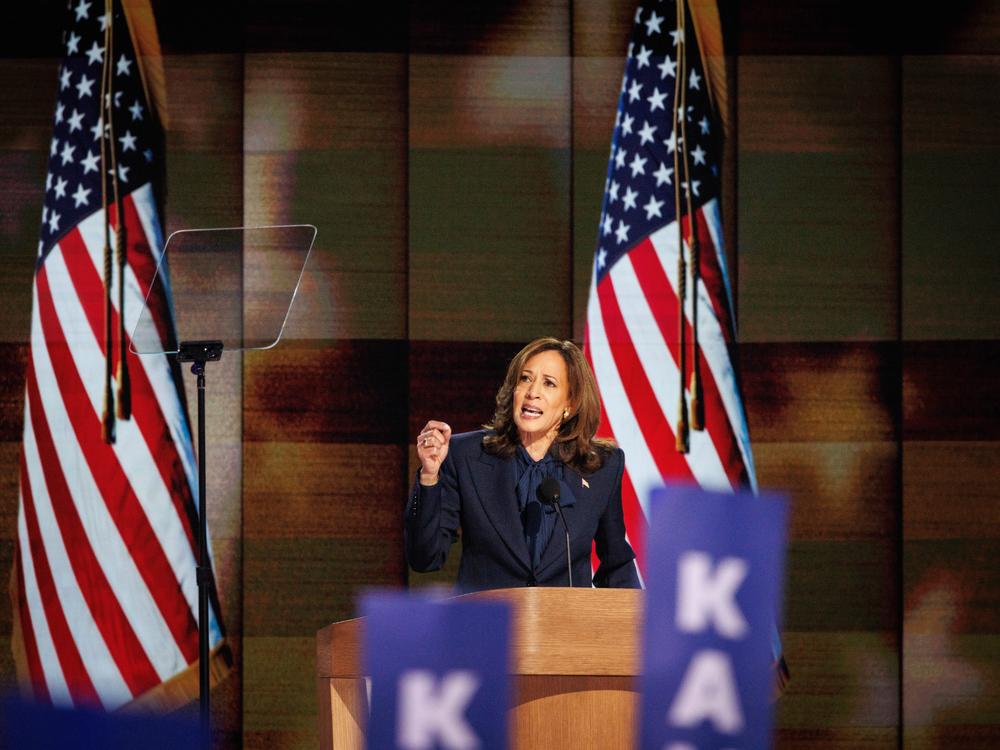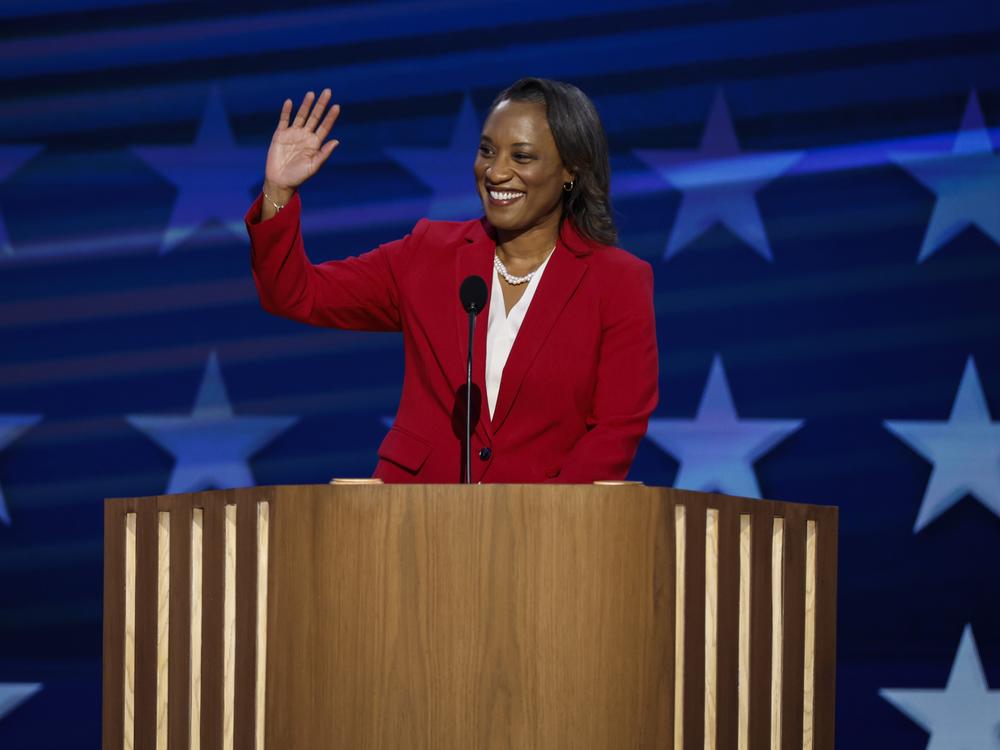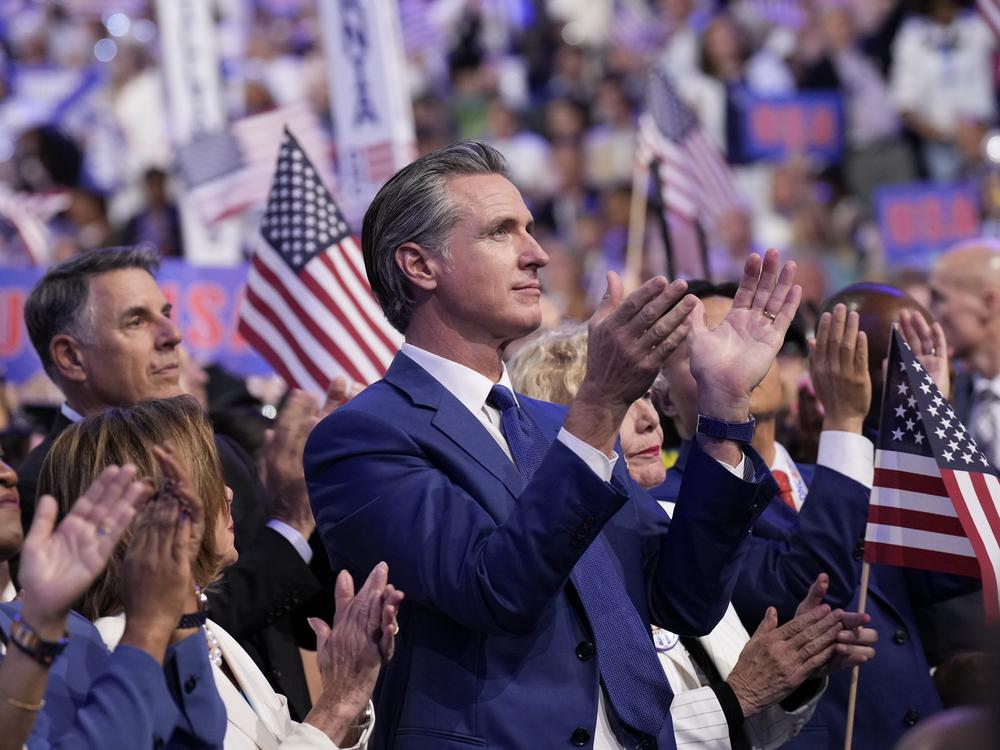Section Branding
Header Content
Trump likes to attack Harris' native California. Its politicians say bring it on
Primary Content
When Vice President Harris faces off against former President Donald Trump tonight at the first presidential debate between the two candidates, he will likely continue his long record of attacking her home state of California.
But after years of being bashed in conservative media and politics, California politicians are on the offensive this election cycle — and relishing the opportunity to talk up the Golden State as one of their own runs for president.
San Francisco Mayor London Breed, who credits the vice president with encouraging Breed to run for office, said she knows her longtime friend will be prepared for anything Trump throws at her — including attacks on her home state.
The mayor said she, as well as San Francisco and the entire Bay Area, will be “watching with so much pride.”
“I’m looking forward to seeing Kamala Harris shine on the national stage,” Breed said. “We know Donald Trump will launch his usual array of dangerous and inhumane attacks, but I know she will bring her rare combination of toughness, intelligence and compassion to puncture his lies and show the American people what a real leader looks like.”
California, and the Bay Area in particular, have long been held up by the right-wing as a dystopic example of progressive failures. But in recent weeks, some of its leading Democrats have been eager to make their case for why that characterization is wrong.
They may have to do so without the Democratic presidential candidate’s help, however: Harris’ campaign and national Democrats seem happy to tamp down most direct mentions of the lightning rod of a state.
Dems draw comparisons with GOP leaning states
Yet Democratic Sen. Laphonza Butler, who was appointed by California Gov. Gavin Newsom last year to the seat long held by the late Sen. Dianne Feinstein, told KQED’s Political Breakdown that she finds kinship between California and red states as she travels the U.S. Butler said that California’s “great diversity” means it does have things in common with Midwest and Southern states.
“We are cities and towns and suburbs and rural communities and we're a border state. And we have challenges of wildfires, challenges of earthquakes,” she said.
“We are right on the Pacific Ocean, and we have beautiful beaches that are being eroded every day.”
That means California is facing challenges similar to those confronting Republican leaning states like Louisiana and Florida that have confronted coastal erosion and Iowa and Oklahoma, which, like California, has an agriculture-dependent economy, Butler said.
“Our farmers are trying to find ways to make sure that they are able to water their cattle or their crops,” she continued. “That is true for Iowa. And Kansas. And so to me, it is helping people to connect with the part of California that means something to them that they just don't know about yet.”
Harris rarely speaks of San Francisco, but its politicians are ready to defend her
At the Democratic National Convention in Chicago last month, some of the state’s leading Democrats — and some of Harris’s oldest friends and colleagues — were eager to make their case for California.
Breed was on a dual mission: support Harris and champion San Francisco. Newsom, who has lived something of a parallel political life to Harris, spent much of his time running around the United Center speaking to mainstream and right-wing media alike. And San Francisco Democratic Rep. Nancy Pelosi — the nation’s first and only female Speaker of the House, who often sparred with Trump when he was president — was in great spirits all week as she made the rounds to state delegate breakfasts, media appearances, convention-adjacent parties and the convention floor itself.
Asked outside the convention center why so much Democratic political talent comes out of the city, Breed had this zinger: “Because we’re San Francisco. That’s why everyone tries to come for us because we're one of the most amazing cities anywhere in the world.”
Newsom played state cheerleader as he spoke during the roll call on the convention floor where each state called out the number of delegates it was pledging to Harris, describing the state as one full of, “dreamers and doers, of entrepreneurs and innovators, that pride themselves on being on the cutting edge of new ideas,” Newsom said to cheers.
While Harris name-checked California just twice in her speech, and never mentioned San Francisco, where she was first elected to office, she spoke warmly of her time growing up in a working-class community in the East Bay.
“In the Bay, you either live in the hills or the flatlands. We lived in the flats. A beautiful, working-class neighborhood of firefighters, nurses and construction workers. All who tended their lawns with pride,” she told the convention hall as she accepted the Democratic nomination last month.
While Harris sought to tie her upbringing to a broader American story that can resonate in swing states and with persuadable voters, Newsom was happy to talk about the city where they both got their political start.
Newsom — who first entered local government as a member of San Francisco’s traffic commission — argued it’s no surprise that the city produced a political star like Harris, who was first elected to office in 2003 as district attorney of San Francisco.
Newsom has spent much of the past few years actively pushing back on criticisms of California — including on conservative media. He says the state’s challenges have created a class of politicians and business leaders who are driven to find creative solutions.
“I think what's in the DNA (of California) is sort of an established expectation, of staying on leading, the cutting edge — there’s no grace for not being ahead of the curve. Looking around the corner, iterating, taking risks, doing the next thing,” he said.
Of course, Newsom has not fully solved some of the state’s biggest challenges, including homelessness, and his failure to make significant progress bringing down the number of unsheltered people remains one of his biggest political weaknesses. But he said while others are talking up California’s failures, he will be acknowledging them — and pushing the Democratic party’s ideas on how to solve them.
So tonight, when Harris and Trump meet, Californians and their leaders will be watching closely to see how their state is characterized — and say they’re ready, if needed, to set the record straight.



